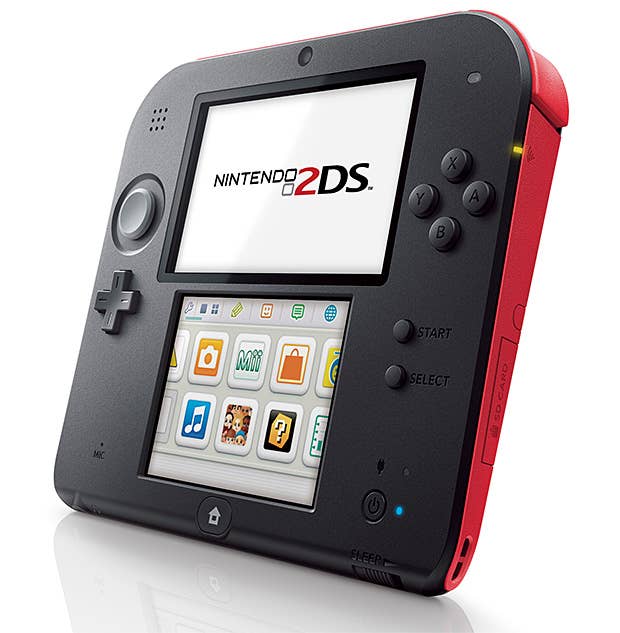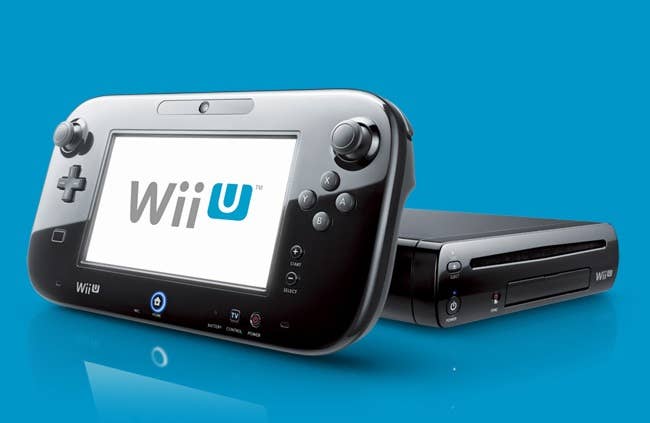Happy Trails
2013 News of the Year, Part 1: It's been an eventful year but we're counting down the top 10 events and trends for easy digestion
As the game industry news cycle slows to a crawl at year's end, it gives us an opportunity to take stock of everything that's happened and consider the major events of 2013. The GamesIndustry International staff settled on 10 notable news bits to reflect on, but rather than churn out one of those hacky, oft-denounced "top 10 list" articles, we shrewdly opted to split this into two articles with five items each and escape denouncement on a technicality. So here are the events, trends, and themes for which 2013 will be remembered. The first part of the countdown follows below. Check back tomorrow for the top 5.
10. Exit Stage Left
There's not much in the way of greater meaning to pull from this particular trend, but a lot of developers and executives who were virtually synonymous with their companies found themselves on the way out this year. Some left of their own volition, pursuing new challenges. Others were shown the door, or fell on their swords. Regardless of the individual reasons, their departures have collectively left the gaming industry looking notably different than it was in the beginning of 2013.
One theme this year was departures in pairs. Over at Microsoft, excitable face of the company and CEO Steve Ballmer announced his forthcoming retirement, stepping away from the Windows maker after more than three decades. Ballmer wasn't the only figurehead on the way out at Microsoft, as Xbox chief Don Mattrick jumped to Zynga just weeks after introducing the world to the Xbox One at a poorly received E3 unveiling.

EA CEO John Riccitiello stepped down in March to appease investors upset over the company's continued struggle to achieve profitability. His jump was preceded by the departure of Playfish co-founder Kristian Segrestrale, who left the publisher to return to the world of start-up companies.
After 23 years, id Software said goodbye to its last remaining founder as John Carmack left the company to join Oculus VR as chief technology officer. The Doom developer also lost long-serving president Todd Hollenshead, who jumped ship in June to pursue personal interests.
Square Enix also lost some of its high-profile executive team, as Yoichi Wada stepped down as CEO in March, some 10 years after first overseeing the merger of Square and Enix. Later in the year, Ian Livingstone parted ways with Eidos, which Square Enix acquired in 2009. Livingstone had been with the developer for more than 20 years, and played a part in launching some of its most recognizable series, including Tomb Raider, Deus Ex, Hitman, and Thief.
The year also saw some notable one-off departures, as former Epic Games president Mike Capps left his advisory role with the company, Unity co-founder Nicholas Francis quit to work making his own games, and Fez developer Phil Fish left the game industry entirely, saying he had his fill of harassment and abuse from players and the press.
9. Much Ado About Microconsoles
The Next Big Thing in games might be a bunch of very small things. Microconsoles were all the rage in 2013, as the Ouya became the first stripped-down Android-based set-top gaming box to hit the market. And while it could be considered a rousing triumph of the crowdfunding paradigm that an original piece of gaming hardware found its way from Kickstarter to shelves in well under a year, the Ouya had troubles. Early reviews were not kind, developers reported anemic sales, and marketing missteps were made.

Regardless of the Ouya's experience, the microconsole market looks to be getting increasingly crowded in the coming years, with competition ranging from upstart to industry leaders. We've already seen the launches of the Nvidia Shield, PlayJam's GameStick, and Mad Catz's Mojo. Now we've got Bluestacks' Gamepop and the Western rollout of Sony's Vita TV to look forward to, as well as rumored microconsoles from Amazon and Google.
We haven't seen much fire just yet, but there's an awful lot of smoke coming from the microconsole market. Even longtime console publisher Electronic Arts expects console makers to face stiff competition from these new players in the coming years.
8. Mobile Maturation
The conventional wisdom and venture capital investment in recent years has been directed squarely at the mobile game market. With consoles on a years-long decline, dedicated gaming handhelds all but forsaken, and Facebook gaming losing its luster, the exploding world of smartphones and tablets was far and away the sexiest corner of the industry coming into 2013.

While the proliferation of mobile devices looks to continue, the obstacles to success in the mobile market appear to be inching higher. Just going through some of the mobile-related headlines of the last year serves as a reminder of the downsides to exponential growth:
Mobile market getting tougher.
Mobile games are over.
Mobile feels like the lottery to indies.
App devs facing major problems with piracy, profitability.
Game devs ditching mobile in favor of PC, console.
Cost-per-install on iOS to exceed $7 over holidays.
Doubtless there were still some tremendous success stories in mobile, like Supercell, which sold a 51 percent share in the company to SoftBank and GungHo for a staggering $1.5 billion. But the growth in mobile seems to be increasingly accounted for by the companies already at the top of the heap. Of course, as the AAA game industry showed until recently, a market in that situation can keep growing for years; the question becomes whether that growth is ultimately sustainable.
7. Nintendo does it again with 3DS
When the 3DS launched in 2011, it was nothing short of a disaster. The software lineup was lacking. The price was too high. The 3D functionality was little more than a gimmick. Nintendo slashed the price less than six months after its launch in a desperate attempt to salvage the system. The move stemmed the bleeding, and the 3DS regained its footing that holiday season, building momentum through 2012.

However, 2013 has been a banner year for the handheld. In the US, the 3DS finally broke the Xbox 360's years-long stranglehold atop the NPD Group's monthly best-seller charts, while in Japan, the handheld cruised past the Wii's lifetime sales total after just two and a half years on the market. And that was before the cost-conscious 2DS version of the hardware launched, positioning it to be one of the must-have holiday gifts for the family.
Then there was a strong lineup of hit 2013 games that filled in franchise gaps like The Legend of Zelda, Animal Crossing, Pokemon, Luigi's Mansion, Donkey Kong Country, and the Mario & Luigi series. Combine that evergreen lineup with a 2014 that will see a new Super Smash Bros. game and notable releases like Yoshi's Island and Mario Golf, and the Nintendo 3DS is looking to not only maintain the company's deathgrip on the dedicated gaming handheld market, but continue to make it relevant in the face of smartphones and tablets.
6. Nintendo does it again with Wii U
Despite the 3DS' success, it would be difficult to call 2013 a great year for Nintendo, and that's largely due to the Wii U. The year started badly for the console, with Nintendo cutting its sales targets after a sluggish holiday sales season for the new system. It didn't get much better from there, as Nintendo delayed four of its "launch window" games (Game & Wario, Wii Fit U, Pikmin 3, and Wonderful 101), despite the company assigning a rather generous launch window running from its November launch through the end of March. As for why the titles were late, Nintendo's Shigeru Miyamoto said the company had underestimated the increase in costs for developing titles with high-definition graphics, despite every other publisher in the industry loudly complaining about it when they made the transition about seven years prior.

The news didn't get much better as the year went on. In May, Electronic Arts confirmed that it wouldn't bother bringing this year's Madden to the Wii U, adding it didn't have any Wii U games in the works at all. (Keep in mind this was less than two years after EA headlined the Nintendo E3 press conference with the announcement of an "unprecedented partnership" to support the system.) In July, UK supermarket chain Asda stopped selling the console entirely. The next month, longtime Nintendo developer n-Space told GamesIndustry International that for the first time in roughly a decade, it wasn't working on Nintendo platforms at all, because publishers just didn't want them.
In September Nintendo instituted the first price drop for the Wii U, a $50 price cut to the Deluxe version of the hardware, bringing it in line with the unchanged asking price of the bare-bones model. That cut came too late to avoid a damning bit of trivia from Nintendo's first-half fiscal results, which showed that for the six months ended September 30, Nintendo sold more Wiis than it had Wii Us, 470,000 to 460,000.
The news didn't get much better as the year drew to a close, either. Super Mario 3D World launched to critical adulation, but failed to outsell lackluster PS4 launch platformer Knack. Adding insult to injury, analysts seem to have given up on the system, projecting it to be another Gamecube and openly wondering why Nintendo president Satoru Iwata still has a job.









